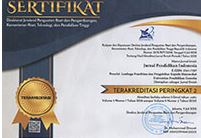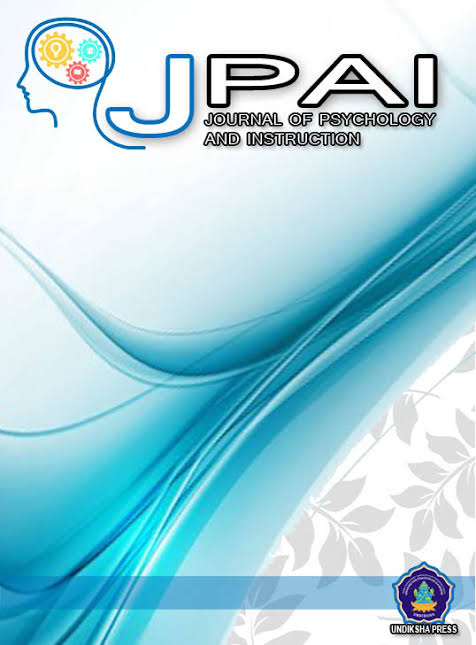The Meaning of Gratitude in Civil Servants
Keywords:
gratitude, civil servant, workAbstract
Gratitude refers to subjective emotions in the form of awe, appreciation, and recognition for everything that has been obtained. Gratitude can also be found in one's job satisfaction and job satisfaction is also an indicator of work attitude, which refers to the overall views and feelings of employees about their work environment and working conditions. The purpose of this research is to understand the meaning of gratitude in civil servants and how this attitude can affect the job satisfaction of civil servants. Based on the research it was concluded that gratitude greatly influences civil servants in their work as well as influences the level of job satisfaction. Gratitude is not only a feeling, but also an attitude, moral nature, habit, nature, and personality, this can affect a person's response to a situation.
References
Boute, V., (2017). Gratitude at work: Its impact in job satisfaction & sense of community. Article in PlasticityLabs.
Caragol, J.A., Johnson, A.R., Kwan, B.M., (2022). A gratitude intervention to improve clinician stress and professional satisfaction: A pilot and feasibility trial. Int J Psychiatry Med, 57(2):103-116. doi: 10.1177/0091217420982112
Chan, D. W., (2011) Burnout and life satisfaction: does gratitude intervention make a difference among Chinese school teachers in Hong Kong? Educational Psychology, 31:7, 809-823, doi: 10.1080/01443410.2011.608525
Chen, H., Yang, X., Xia, W., Li, Y., Deng, Y., Fan, C., (2023). The relationship between gratitude and job satisfaction: The mediating roles of social support and job crafting. Curr Psychol, 42, 3134–3141. https://doi.org/10.1007/s12144-021-01658-y
Di Fabio, A., Palazzeschi, L., Bucci, O., (2017). Gratitude in organizations: A Contribution for Healthy Organizational Contexts. Frontiers in Psychol. 8:2025.
Emmons, R. A., (2003). Counting blessings versus burdens: An experimental investigation of gratitude and subjective wellbeing in daily life. Journal of Personality and Social Psychology, 377-389.
Fauziyyah, A., & Luzvinda, L., (2017). Effect of job satisfaction and gratitude on organizational citizenship behaviour. Tazkiya Journal of Psychology, 22(1).
Fehr, R. F., (2017). The grateful workplace: A Multilevel model of gratitude in organizations. Academy of Management Review , 361-381.
Kaufman, S. B. (2015). Which chracter strenghs are most predictive of well-being. Scientific American Blog.
Lai, Y. C., (2019). Turnover intention of kindergarten teachers in China: Status, measurment, influenscing factors and corresponding strategies. Journal of Human First Normal University, 67-71.
Lambert, N. M., (2010). Benefits of expressing gratitude: Expressing gratitude to a partner changes one’s view of the relationship. Journal of Psychological Science, 574-580.
Lanham, M. R., (2012). How Gratitude relates to burnout and job satisfaction in mental health professionals. Journal of Mental Health Counseling, 341-354.
Liang, G. L., (2014). Research on the mechanism of grateful dispotion on personal initiative: The mediating effect of leader-member exchange and psychological ownership. Chinese Journal of Management, 1014-1020.
Madrigal, R., (2020). The role of identification and gratitude in motivating organization-serving intentions and behaviors. Journal of Business Research, 116: 75-84. https://doi.org/10.1016/j.jbusres.2020.05.020.
Moleong, L. J. (2007). Metodologi penelitian kualitatif. Bandung: PT. Remaja Rosdakarya.
McCullough, M. E., (2002). The gareteful disposition: A conceptual and empirical topography. Journal of Personality and Social Psychology, 112-127.
Rusk, R. (2013). Tracing the size, reach, impact and breadth of positive psychology. Journal of Positive Psychology, 207-221.
Sugiyono. (2019). Metode penelitian kuantitatif kualitatif dan R&D. Bandung: Alfa beta.
Watkins, P. C. (2003). Gratitude and happiness: Development of measure of gratitude, and relationship with subjective well-being. Social Behavior and Personality, 431-452.
Wood, A. M., (2009). Gratitude predicts psycholoycal wellbeing above the big five facets. Journal Personality and Individual Different, 10










